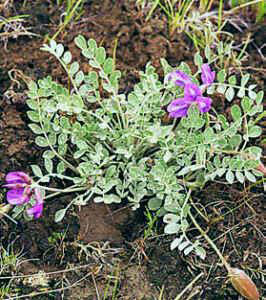I wanted to share this herb since we are now in winter: the time of viruses and upper respiratory infections, and flu. I use it myself when I will be exposed to viruses, and frequently recommend it to people who get sick after plane rides, and to teachers and grandparents who are exposed to the most powerful bugs known to humans – those brewed by the young ones in daycare and classrooms! This herb is a powerful ally during cold and flu season. In addition, when used correctly, it can be extremely helpful in serious conditions such as cancer, diabetes, and immune system imbalances.
Qualities: Anti-viral, anti-bacterial, immune system enhancer, tonic, antioxidant.
Warnings: peanut and bean allergies, certain proliferative cancers, chronic infections such as Lyme, and people who may be harmed by immune system stimulation including some autoimmune conditions.
Uses: Upper respiratory infections, influenza, common cold, myalgic encephalitis(ME, CFS), Epstien Barr (mono), increasing white blood cell counts – effective in increasing blood counts and improving sleeping habits in people experiencing chemotherapy. Astragalus increases production of interferon gamma, reduces replication of viruses including acute and chronic HIV-1, and is healing effect to the lining of the digestive tract.
Description: The root is slightly warming with sweet and moistening qualities. The power of this herb is in long-term administration, and in most cases should be considered before symptoms fully develop. This herb has an extensive history of use in classical Chinese medicine, and has a robust evidence base. More than 100 compounds, including flavonoids, saponins, polysaccharides, and amino acids, have so far been identified.
It can be used as a preventative for colds, flus, and will help some people with seasonal allergies. It is a tonic which gently supports cortisol regulation, kidney function, and immune system balance. It has certain anti-cancer effects, and is highly effective as an adjunct with chemotherapy and radiation treatments. However, it is contraindicated for certain cancers and chemotherapy regimes so must be prescribed by a by a provider familiar with all aspects of cancer care. This versatile herb is a powerful antioxidant, and has antidiabetic and insulin regulating effects.
Astragalus is usually administered as a tea, or as a standardized extract. It should be taken every day when it is indicated for use.

References:
Fu J, Wang Z, et al. Review of the botanical characteristics, phytochemistry, and pharmacology of Astragalus membranaceus (Huangqi). Phytother Res. 2014 Sep;28(9):1275-83. doi: 10.1002/ptr.5188. Epub 2014 Aug 2.
Qi Y, Gao F, et al. Anti-Inflammatory and Immunostimulatory Activities of Astragalosides. Am J Chin Med. 2017;45(6):1157-1167. doi: 10.1142/S0192415X1750063X. Epub 2017 Aug 22.
Shahzad M, Shabbir A, et al. The Antioxidant Effects of Radix Astragali (Astragalus membranaceus and Related Species) in Protecting Tissues from Injury and Disease. Curr Drug Targets. 2016;17(12):1331-40.
Zhang K, Pugliese M, et al. Biological active ingredients of traditional Chinese herb Astragalus membranaceus on treatment of diabetes: a systematic review. Mini Rev Med Chem. 2015;15(4):315-29.
Auyeung KK1, Han QB2, et al. Astragalus membranaceus: A Review of its Protection Against Inflammation and Gastrointestinal Cancers. Am J Chin Med. 2016;44(1):1-22. doi: 10.1142/S0192415X16500014.
Guo Q, Sun X, et al. The effect of Astragalus polysaccharide on the Epstein-Barr virus lytic cycle. Acta Virol. 2014;58(1):76-80.
Ren S, Zhang H, et al. Pharmacological effects of Astragaloside IV: a literature review. J Tradit Chin Med. 2013 Jun;33(3):413-6.
Li M, Wang W, et al. Meta-analysis of the clinical value of Astragalus membranaceus in diabetic nephropathy. J Ethnopharmacol. 2011 Jan 27;133(2):412-9. doi: 10.1016/j.jep.2010.10.012. Epub 2010 Oct 13.
